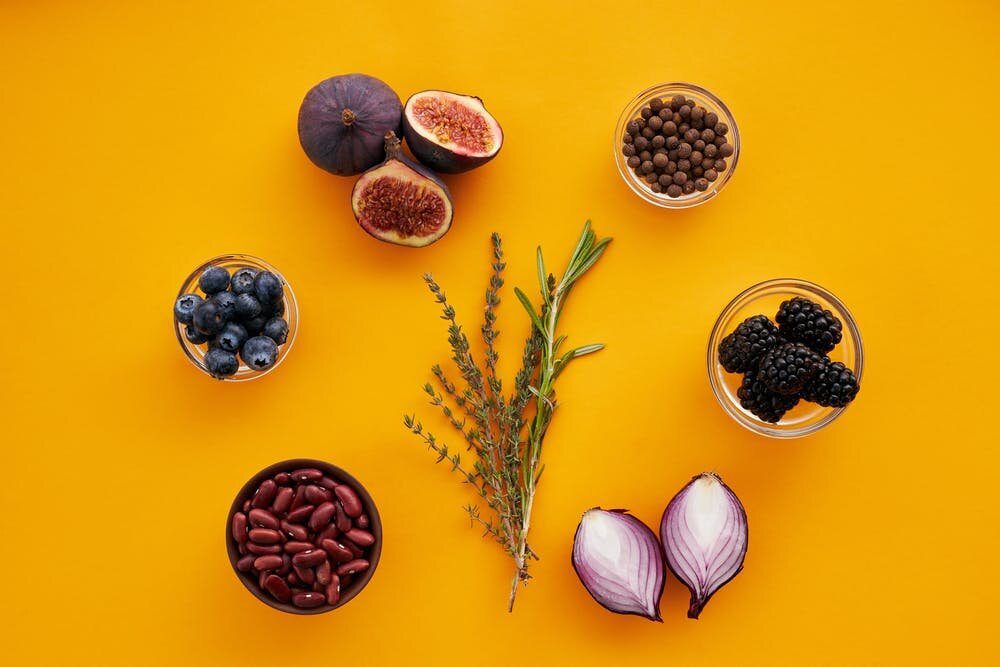Reset your gut health: Gut cleanse to beat stomach bacteria & ditch inflammation
Show your stomach some love and your healthy gut will provide you with health, happiness and improved wellbeing
Text: Kritika S
A happy and healthy gut means a happy you. It’s proven by science that the human gut has a direct impact on our mental health through a strong gut-brain connection so it’s important that we keep it in tip-top condition to remain healthy and balanced. While it’s essential to be mindful of this constantly, the period after the Christmas festivities while we lead up to Chinese New year feels like the perfect time to reset your gut health and cleanse your gut to beat stomach bacteria and ditch inflammation for a healthy gut.
Our intestines control digestion by breaking down the foods we eat and absorbing the required nutrients. But here’s another cool fact: the gut microbiome (the ecosystem of microorganisms in the gut) produces neurochemicals including 90% of our beloved serotonin (the happy chemical), so if you’re feeling down, it could be traced to a gut imbalance including stomach bacteria or inflammation.
In addition, the ratio of different types of bacteria in our gut determines the fibre and carbohydrates digested by our body. It also impacts how fat is stored. Done right, it’s possible to gain or lose weight by regulating this balance of bacteria through a gut reset.
Create a bacteria balance
No-one wants a bloated stomach or stomach pain, and as CNY can invite some comments about our appearance from well-meaning relatives, it’d be nice for our gut to feel lean, toned and strong as the celebrations commence. So, if you’re looking to cleanse your gut, beat stomach bacteria and ditch inflammation, a gut reset might be in order. This means maintaining a healthy gut by introducing healthy foods and practices to your diet, and creating a balance between the beneficial bacteria and the harmful bacteria.
A gut reset with a vegetable and fruit heavy diet can be a good option. A short-term gut reset can help to cleanse and reactivate better gut health, but the more sustainable solution lies in adopting better food and lifestyle habits to cleanse your gut, beat stomach bacteria and ditch inflammation for the long-term. As always, it’s advisable to go for a proper medical consultation before embarking on any new diet. It’s also recommended to get tested for any allergies and sensitivities in the gut.
Here are some fundamental food recommendations to start with:
High-fibre foods
Fibrous foods are a must for proper bowel movement and a clean gut. Not only does the fibre facilitate better transit of food through the digestive tract, it also promotes the development of good bacteria.
· These include sweet potato, oatmeal, wholegrains, pulses, beans, lentils, nuts and seeds
· Vegetables like peppers, tomatoes, red onions and eggplants and dark leafy greens, such as cabbage, broccoli and spinach. These are a great source of prebiotics and antioxidants that help reduce inflammation
· If bloating is an issue, consume only small portions of ‘windy vegetables’ such as broccoli, cauliflower, cabbage and sprouts. Try Kitchen by food rebel, Well Smoocht, The Living Café to adopt a plant based diet in Singapore.
Berries and oily fish
Berries contain high doses of Vitamin C, a lack of which can lead to fatigue and low motivation. Oily fish is a great source of tryptophan, which is an amino acid that plays an important role in the production of serotonin in the body, as well as promoting healthy sleep.
These are the beneficial bacteria that help maintain a healthy gut by fighting off bad bacteria. You can increase your intake of probiotics with the following:
· Fermented foods like yoghurt, kefir, kimchi, sauerkraut, miso, and tempeh are a natural source of probiotics
· Kombucha is an ancient fermented drink, which is rich in probiotics and contains antioxidants that can kill harmful bacteria. Advocates say it helps digestion, rids your body of toxins and boosts your energy
· Consider probiotic supplements upon proper consultation. Options such as Holistic Way Probiotic 75 Billion 30s help with maintaining the gut’s natural acidity level whilst using a delayed method of releasing good bacteria into the digestive tract
Prebiotics
These are the nondigestible food ingredients that increase the numbers and diversity of probiotics and beneficial bacteria. Below are some common food sources of prebiotics:
· Onions, garlic, leeks, asparagus, bananas, oats and barley
· Check for gluten intolerance and sensitivity, and avoid whole grains like barley, wheat and rye in that case
Less sugar and refined carbs
Yes, we know chocolate is delicious, but sugar releases the hormone insulin in the body that causes inflammation. More sugar means more inflammation in the gut. So regulating and monitoring your sugar intake is essential for a clean gut.
Additionally, refined carbohydrates like white bread, rice, pasta, chips and similar savoury snacks are broken down to glucose by the gut bacteria, and absorbed into the blood which in turn raises the insulin levels. Forfeiting your favourites shouldn’t be an option — balance them out with alternative wholegrain variations.
Stay hydrated
Water (preferably lukewarm) helps restore the balance of beneficial bacteria in your gut microbiome. Having 6-8 glasses of water is recommended for a colon cleanse when you’re aiming for a gut reset. Also, avoid caffeine and alcohol and instead consume herbal teas such as peppermint, chamomile or fennel.
Avoid smoking
Smoking can aid the production of harmful bacteria that will disturb the balance of the microbiome. This bad bacteria not only hampers digestion of the right nutrients and fibres, but also causes gut inflammation. And you don’t need us to tell you what else smoking does to the body ...
Disclaimer: This article is not intended to be a substitute for professional medical advice, diagnosis, or treatment. Always seek the advice of your physician or other qualified health provider with any questions you may have regarding your health.












